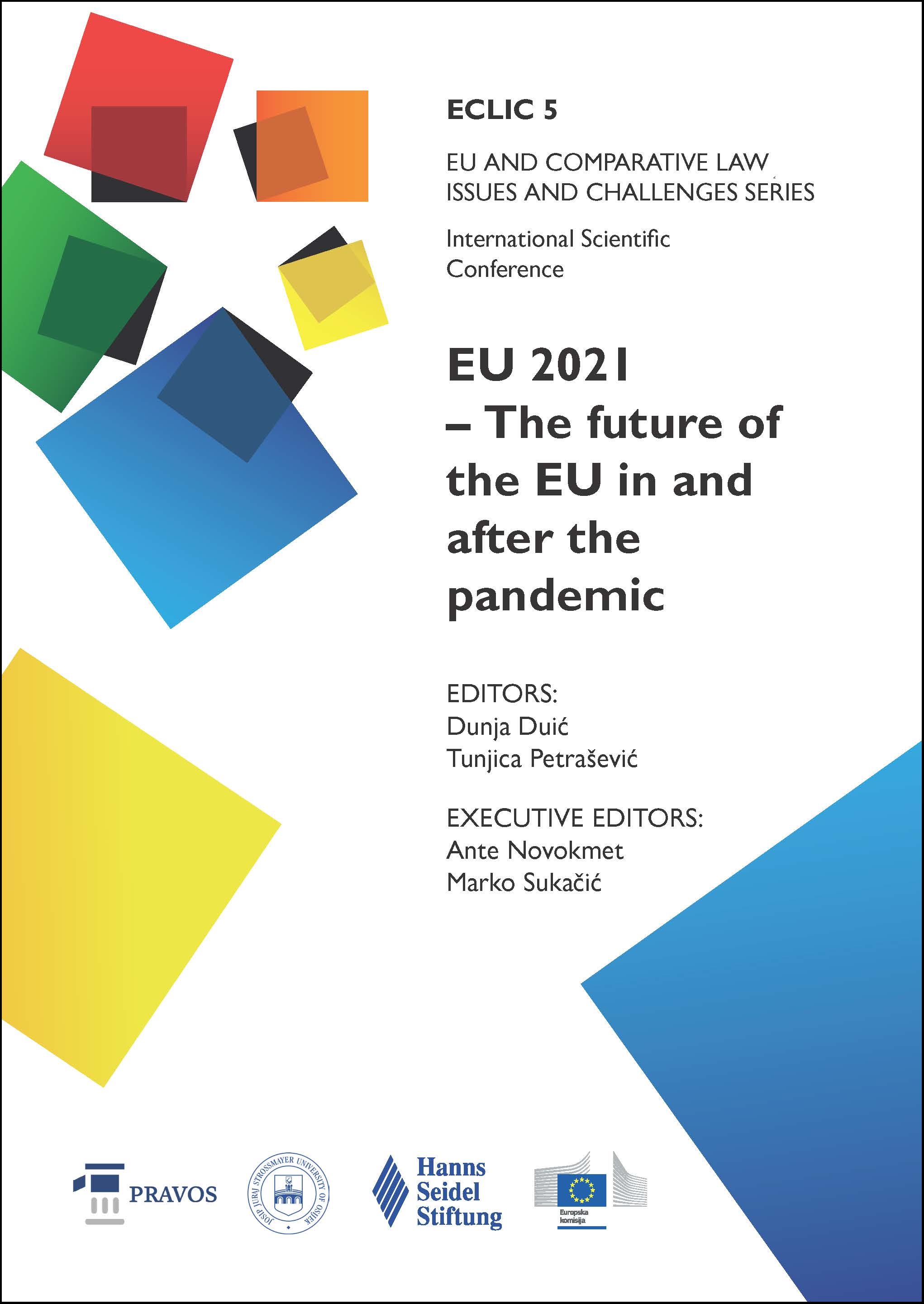THE COVID-19 PANDEMIC AND THE IMPLEMENTATION OF THE EUROPEAN GREEN DEAL
DOI:
https://doi.org/10.25234/eclic/18357Abstract
This paper aims to explore how the COVID-19 pandemic influenced the implementation of the European Green Deal and to which extent have the European Union’s green growth and sustainable development goals been incorporated into its COVID-19 Recovery Strategy. The European Union’s Green Deal, a ‘generation defining’ growth strategy, which lays down the strategic pathway of the European Union’s economic development for the upcoming two decades, has been faced with a major challenge shortly after its adoption in December 2019. However, despite the COVID-19 pandemic, which has continuously been putting all European Union member states to a harsh challenge during the past year, climate change and the green transition have been at the top of the political agenda in the European Union and have managed to occupy the attention of the mainstream politics and European Union citizens. Furthermore, the unprecedented levels of public financing which have been mobilised due to the pandemic have provided an opportunity for speeding up the green transition, without which the achievement of the Green Deal’s main aims and the fulfilment of the European Union’s obligations under the Paris Agreement would likely be put in question. In order to analyse how the has the COVID-19 pandemic influenced the implementation of the Green Deal, the paper first examines how the member states and the European Union institutions initially reacted to the idea of pursuing the implementation of the Green Deal simultaneously with economic recovery. This is accomplished through an analysis of statements given by the European Union and member state officials and the adopted measures and legislative proposals. The paper then focuses on publicly available data on legislative delays in regard to the implementation of the Green Deal which took place due to the pandemic and concludes that no significant postponements occurred. It subsequently turns to examine which measures have been adopted at the European Union level that link the economic recovery and the green transition. In this regard, special attention is paid to the Recovery and Resilience Facility and its measures aimed at ensuring that member states pursue climate change and environmental objectives in their recovery plans. Given the size of the public investments which will take place in the following years, the paper emphasises the importance of stringent environmental standards in order to ensure that they contribute to the green transition and avoid a fossil fuel lock-in.
Downloads
Published
How to Cite
Issue
Section
License
Copyright (c) 2021 Melita Carević

This work is licensed under a Creative Commons Attribution-NonCommercial 4.0 International License.
Authors retain the copyright on the papers published in the Journal, but grant the right of first publication to the Journal. Papers accepted for publication or already published in ECLIC of the Faculty of Law in Osijek may be published by the author(s) in other publications only with proper notice of its previous publication in ECLIC.


